Filter by

Lessons learned: how parents respond to school mandates and sanctions
Over the past three decades, a reform movement bent on improving schools and educational outcomes through standards-based accountability systems and market-like competitive pressures has dominated policy debates. Many have examined reform policies’ effects on academic outcomes, but few have explored these policies’ influence on citizens’ political orientations. In this study, using data from an…
- Edition
- Volume 37, Issue 2, June 2017, p. 205-232
- ISBN/ISSN
- 0141814X
- Collation
- -
- Series Title
- Journal of Public Policy
- Call Number
- -

How to measure public demand for policies when there is no appropriate survey…
Explanatory models accounting for variation in policy choices by democratic governments usually include a demand (by the public) and a supply (by the government) component, whereas the latter component is usually better developed from a measurement viewpoint. The main reason is that public opinion surveys, the standard approach to measuring public demand, are expensive, difficult to implement s…
- Edition
- Volume 37, Issue 2, June 2017, p. 173-204
- ISBN/ISSN
- 0141814X
- Collation
- -
- Series Title
- Journal of Public Policy
- Call Number
- -

The fiscal benefits of repeated cooperation: coalitions and debt dynamics in …
Do coalition governments really suffer from short time horizons in fiscal policymaking, as posited by standard political-economy models? This article focusses on coalitions that have created high levels of familiarity through shared governing experiences in the past and that are likely to cooperate again in future governing coalitions. I argue that such coalitions have incentives to internalise…
- Edition
- Volume 37, Issue 2, June 2017, p. 143-172
- ISBN/ISSN
- 0141814X
- Collation
- -
- Series Title
- Journal of Public Policy
- Call Number
- -

Europeanisation beyond the European Union: tobacco advertisement restrictions…
This article forges a link between support for European integration and adoption of tobacco advertisement restrictions in Swiss cantons. Leaning on the policy diffusion literature, this article argues that the more voters support deeper European integration, the more likely cantonal governments are to restrict tobacco advertising. Policymakers use voters’ support for more European integration a…
- Edition
- Volume 37, Issue 2, June 2017, p. 113-142
- ISBN/ISSN
- 0141814X
- Collation
- -
- Series Title
- Journal of PUblic Policy
- Call Number
- -

Job creation and firm-specific location incentives
Government economic development programmes provide opportunities for firms to leverage financial incentives for business expansion and relocation. This article examines the ability of these incentives to promote employment. Using establishment-level data from the state of Kansas as well as original firm-level survey data, I evaluate the effectiveness of financial incentives in creating jobs thr…
- Edition
- Volume 14, Number 1, March 2018, p. 85-112
- ISBN/ISSN
- 0141814X
- Collation
- -
- Series Title
- Journal of Public Policy
- Call Number
- -

Plan generosity in health insurance exchanges: what the Affordable Care Act c…
The landmark United States healthcare reform law – the Affordable Care Act – provides an opportunity to study the dynamics of implementation for complex, politically contentious policies. Matland’s Ambiguity-Conflict Model suggests that bottom-up models will dominate in such cases. I exploit variation across states in the implementation of online health insurance marketplaces to test whether th…
- Edition
- Volume 37, Issue 1, March 2017, p. 55-83
- ISBN/ISSN
- 0141814X
- Collation
- -
- Series Title
- Journal of Public Policy
- Call Number
- -

The politics of strategy: why government agencies conduct major strategic rev…
In recent years, United States (US) policymakers have instituted quadrennial strategy reviews in several major policy areas. In this article, I examine why policymakers have initiated these large strategic reviews, and why a particular model for them has diffused from the US Defense Department to other government agencies. I find that policymakers have initiated the reviews principally to spur …
- Edition
- Volume 37, Issue 1, March 2017, p. 27-54
- ISBN/ISSN
- 0141814X
- Collation
- -
- Series Title
- Journal of Public Policy
- Call Number
- -

Defending the status quo across venues and coalitions: evidence from Californ…
This study investigates the conditions under which pro-status quo groups increase their advocacy success during an entire policymaking process. It scrutinises whether pro-status quo defenders who are involved in multiple institutional venues and who join many coalitions of interest groups are able to achieve their policy preferences. A case study focussing on the regulation of stem cell researc…
- Edition
- Volume 37, Issue 1, March 2017, p. 1-26
- ISBN/ISSN
- 0141814X
- Collation
- -
- Series Title
- Journal of Public Policy
- Call Number
- -

Exploring Gender Differences in Support for Rightist Parties: The Role of Par…
This contribution to the Special Issue on Gender and Conservatism uses expert and election surveys to explore the extent to which the feminist or traditional gender ideology of parties of the right relates to their economic and liberal/authoritarian ideology. We show that although parties of the left generally espouse more feminist ideologies than parties of the right, there are a significant n…
- Edition
- Volume 14, Number 1, March 2018, p. 80-105
- ISBN/ISSN
- 1743923X
- Collation
- -
- Series Title
- Politics & Gender
- Call Number
- -

Is There a Conservative Feminism? An Empirical Account
The question of conservative feminism in the United States did not really arise before the 2008 elections; most politically active conservative women leaders did not refer to themselves as feminists. Sarah Palin's vice presidential bid, however, prompted a shift. On a number of well-publicized occasions, Palin called herself a feminist, generating considerable discussion over whether conservati…
- Edition
- Volume 14, Number 1, March 2018, p. 56-79
- ISBN/ISSN
- 1743923X
- Collation
- -
- Series Title
- Politics & Gender
- Call Number
- -

Righting Conventional Wisdom: Women and Right Parties in Established Democracies
Parties are the key actors shaping women's representation in advanced parliamentary democracies. Based on traditional patterns of feminist organizing, conventional wisdom suggests that parties of the left are the strongest advocates for women. Despite the prevalence of this claim, a burgeoning body of work indicates that parties on the right can—and often do—seek to represent women. To address …
- Edition
- Volume 14, Number 1, March 2018, p. 27-55
- ISBN/ISSN
- 1743923X
- Collation
- -
- Series Title
- Politics & Gender
- Call Number
- -

Conservatism and Women's Political Representation
Conservative political actors appear rather troubling for many gender and politics scholars and feminist activists. What should we make of their claims to represent women? How should we best understand their actions? This article, based on a critical rereading of the empirical literature and informed by contemporary representation theory, develops a new conceptual framework for assessing the qu…
- Edition
- Volume 14, Number 1, March 2018, p. 5-26
- ISBN/ISSN
- 1743923X
- Collation
- -
- Series Title
- Politics & Gender
- Call Number
- -
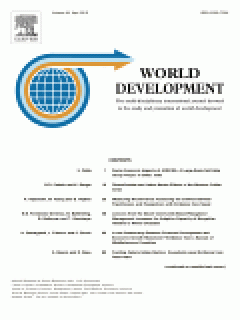
World Development, Volume 106, June 2018
- Edition
- -
- ISBN/ISSN
- 0305750X
- Collation
- -
- Series Title
- -
- Call Number
- -
- Edition
- -
- ISBN/ISSN
- 0305750X
- Collation
- -
- Series Title
- -
- Call Number
- -
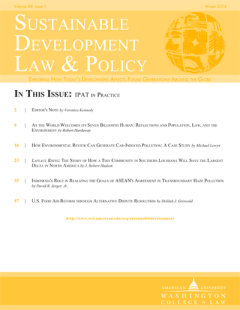
Sustainable Development Law & Policy, Volume 18, Issue 1, Fall 2017
- Edition
- -
- ISBN/ISSN
- 15523721
- Collation
- -
- Series Title
- -
- Call Number
- -
- Edition
- -
- ISBN/ISSN
- 15523721
- Collation
- -
- Series Title
- -
- Call Number
- -
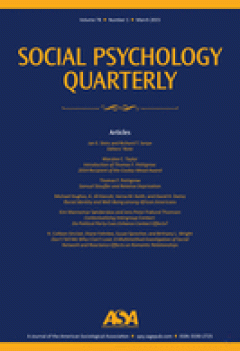
Social Psychology Quarterly, Volume 81, Number 1, March 2018
- Edition
- -
- ISBN/ISSN
- 01902725
- Collation
- -
- Series Title
- -
- Call Number
- -
- Edition
- -
- ISBN/ISSN
- 01902725
- Collation
- -
- Series Title
- -
- Call Number
- -

Social Research, Volume 84, Number 2, Summer 2017
- Edition
- -
- ISBN/ISSN
- 0037783X
- Collation
- -
- Series Title
- -
- Call Number
- -
- Edition
- -
- ISBN/ISSN
- 0037783X
- Collation
- -
- Series Title
- -
- Call Number
- -

Social Research, Volume 84, Number 3, Fall 2017
- Edition
- -
- ISBN/ISSN
- 0037783X
- Collation
- -
- Series Title
- -
- Call Number
- -
- Edition
- -
- ISBN/ISSN
- 0037783X
- Collation
- -
- Series Title
- -
- Call Number
- -
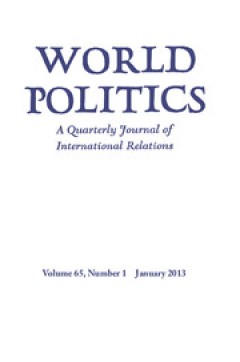
World Politics, Volume 70, Number 2, April 2018
- Edition
- -
- ISBN/ISSN
- 00438871
- Collation
- -
- Series Title
- -
- Call Number
- -
- Edition
- -
- ISBN/ISSN
- 00438871
- Collation
- -
- Series Title
- -
- Call Number
- -
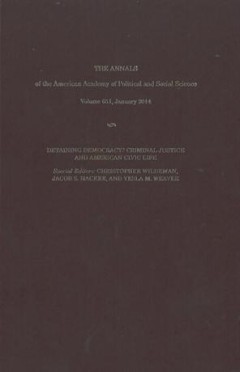
The ANNALS of the American Academy of Political and Social Science, Volume 67…
- Edition
- -
- ISBN/ISSN
- 00027162
- Collation
- -
- Series Title
- -
- Call Number
- -
- Edition
- -
- ISBN/ISSN
- 00027162
- Collation
- -
- Series Title
- -
- Call Number
- -

Politics & Gender, Volume 14, Number 1, March 2018
- Edition
- -
- ISBN/ISSN
- 1743923X
- Collation
- -
- Series Title
- -
- Call Number
- -
- Edition
- -
- ISBN/ISSN
- 1743923X
- Collation
- -
- Series Title
- -
- Call Number
- -
 Computer Science, Information & General Works
Computer Science, Information & General Works  Philosophy & Psychology
Philosophy & Psychology  Religion
Religion  Social Sciences
Social Sciences  Language
Language  Pure Science
Pure Science  Applied Sciences
Applied Sciences  Art & Recreation
Art & Recreation  Literature
Literature  History & Geography
History & Geography